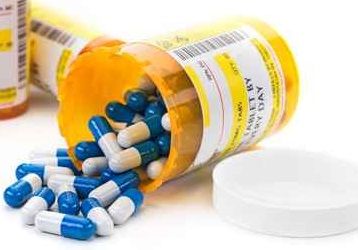Study Finds Plant-made Protein Drugs Can Target Dental Biofilms and Oral Tissues
In a new study published in Biomaterials, scientists at the University of Pennsylvania School of Dental Medicine have begun to explore a low-cost approach to control oral biofilms using topical plant-based antimicrobial peptides (PMAMPs).

While there have been tremendous advances in the medical field with regard to new medications that can be offered to patients, the dental field often falls behind in its ability to utilize many of these drugs. One such class of medications, protein drugs, has already been used widely in the medical field as some of the most important and highly prescribed biopharmaceutical products on the market, as is the case with insulin. However, these drugs are usually not prescribed in dentistry because of their high costs. Typically, the protein drugs that are used by dentists have to be surgically delivered to gum tissues.
In a new study published in Biomaterials, scientists at the University of Pennsylvania School of Dental Medicine have begun to explore a low-cost approach to control oral biofilms using topical plant-based antimicrobial peptides (PMAMPs). In the lab, the scientists grew three different types of bacteria, including two types of Streptococcus bacteria and one variety of Actinomyces bacteria, in a tryptone-yeast extract broth growth medium. The research team was then able to use the PMAMPs to quickly kill the bacteria and stop the formation of biofilms on a tooth-like surface. This was accomplished using only a single topically applied treatment.
When the PMAMPs were combined with a specific enzyme that degrades the biofilm matrix, they were shown to be even more effective at killing the bacteria than if they were applied as a treatment by themselves. The peptides were also found to be absorbed by both gingival and periodontal cells, leading the research team to believe that the topical delivery method could also be useful in the treatment of diseases that specifically affect the gum tissue.
Due to the success of this study, scientists have hypothesized that these types of protein drugs have the potential to be delivered to patients orally, in a non-invasive manner. This could increase patient compliance with the treatment regimen. Also, previous research has already shown that protein drugs that have been bioencapsulated in plants can be stored at room temperature for many years without losing their efficacy. This could help to reduce the cost of the production of such drugs, since much of the cost now is associated with keeping the drugs viable during their short shelf life. Since these results are so encouraging, focus can now shift to in vivo and clinical studies examining the anti-biofilm and anti-caries efficacy of the drugs, in addition to sustained, targeted delivery systems in the mouth.
ACTIVA BioACTIVE Bulk Flow Marks Pulpdent’s First Major Product Release in 4 Years
December 12th 2024Next-generation bulk-fill dental restorative raises the standard of care for bulk-fill procedures by providing natural remineralization support, while also overcoming current bulk-fill limitations.